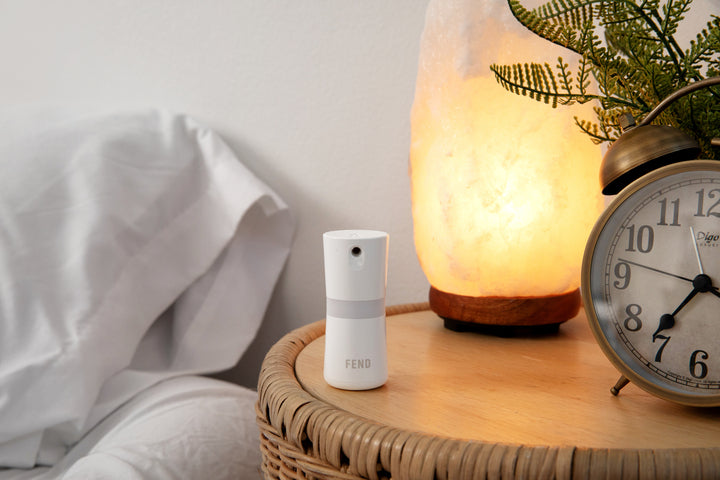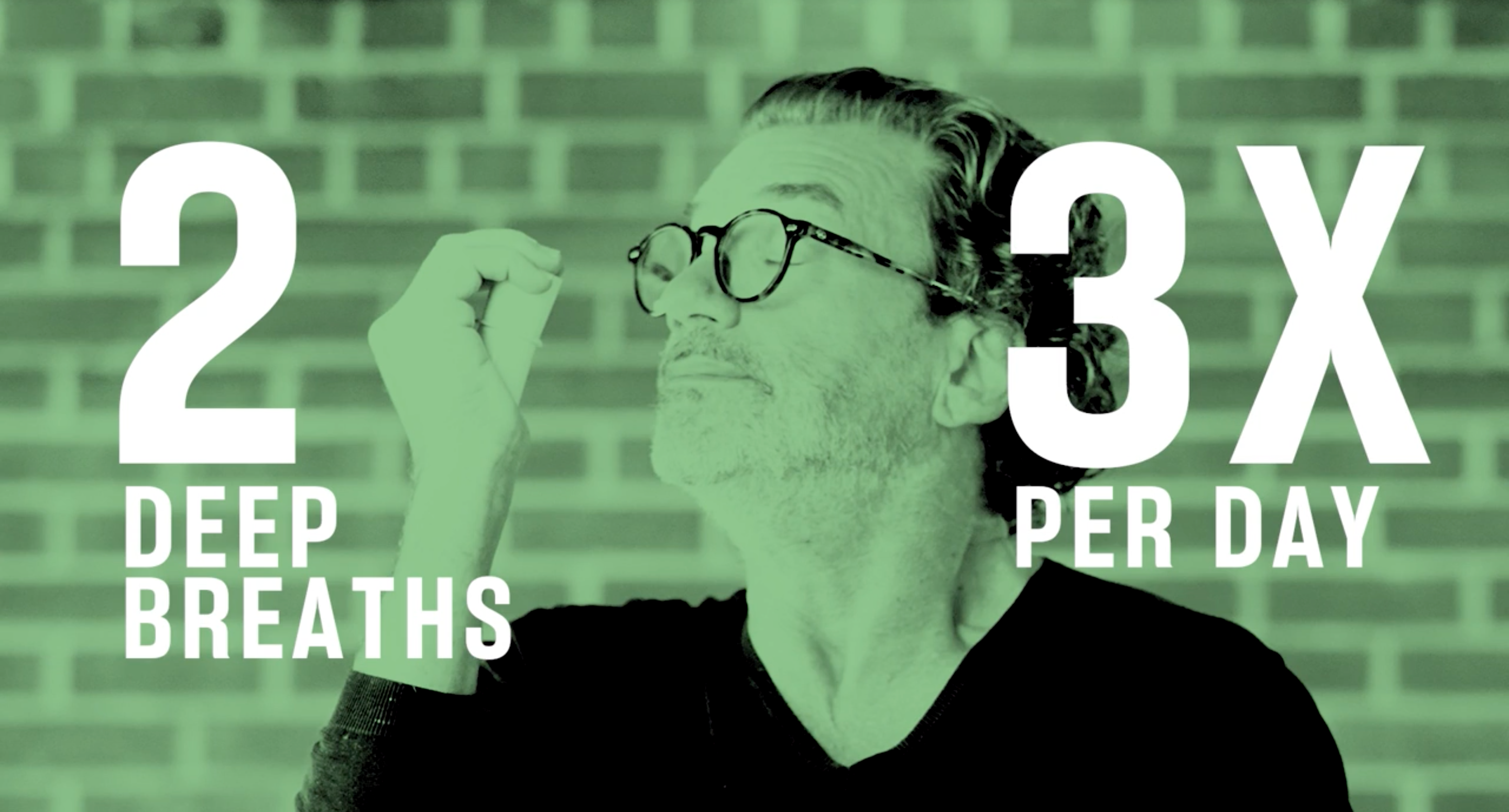Are you losing sleep over airway hydration?
Every night when you lay down to go to sleep, you become an obligate nose breather throughout the night. This means that you only breathe through your nose. When nose obstruction blocks the air from reaching your lungs, you revert to breathing through your mouth, and sleep quality decreases.
How do you notice this is happening? You may snore, your mouth may dry out, and your oxygen saturation levels may fall. All of these things have the same outcome: a bad night of sleep.
The natural solution: our bodies.
Over the course of human evolution, our bodies have naturally created a clever way for us to sleep well: the ability of our upper airways to self-clean. Not surprisingly, this also helps us breathe well. Because after all, when we breathe well, we sleep well!
“Breathing well” means keeping the air we breathe clean and hydrated. Our airways pull particles out of the air onto mucus and sweep that mucus to the mouth. After that, you swallow contaminants before they enter your lungs. In order for our bodies to do this properly, our upper airways need to stay wet!
Let's simplify airway hydration.
Think of it like this: the mucus is like a sticky trap in our upper airways to catch and filter as many airborne particles as it can. But, the mucus needs to move out of the lungs to clean them! In order for your mucus to do this and do it well, it needs to have enough water around to float above the cilia (microscopic, hair-like structures) that beat it toward the mouth to swallow and keep away from the lungs.
When our airways dehydrate, we feel it.
If the airways are dehydrated, the mucus stops moving and sits smack on the cells of our airways, keeping the cilia from moving. The cells then become stressed with all of the airborne particles sticking around, and they become inflamed. This then produces more mucus and clogs up our nose, which then worsens our sleep.For example, in this study conducted by the Journal of Clinical Sleep Medicine, they found that when our bedroom is dry, the more particulate pollution is in the air, the poorer we sleep, and the cases of sleep apnea go up. However, when the air is humid, there is no correlation with air pollution! Why? When our airways are wet, they know how to keep our air clean and help us sleep!
What happens when the airways aren't hydrated?
There are other conditions that dry us out, too — old age, high BMI, infection, air-conditioned rooms, air travel, and cold weather, among others. When our airways dehydrate, not only do they fail to clean well, they actually produce more mucus and create more congestion (that’s why our nose gets congested when we are outside breathing really cold, dry air).
Hydrated and clean airways with FEND.
FEND hydrates your nose, larynx, and trachea and keeps your upper airways hydrated for up to 6 hours — even if you are yourself dehydrated, or are in a really dry room or climate. Use it just before you go to bed by taking two deep breaths of the hydrating mist. Keep it next to the bed and use it at night if you wake up needing more airway hydration. Hydrate to breathe freely while you sleep — and to sleep better.




Leave a comment
This site is protected by hCaptcha and the hCaptcha Privacy Policy and Terms of Service apply.